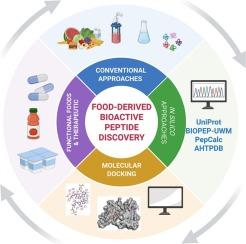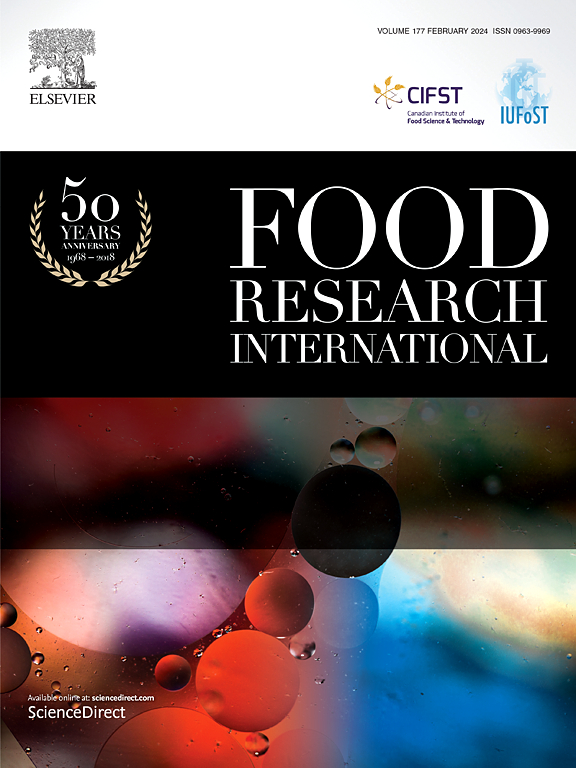In silico and molecular docking approaches in food-derived bioactive peptide discovery: Trends, challenges, and prospects
IF 8
1区 农林科学
Q1 FOOD SCIENCE & TECHNOLOGY
引用次数: 0
Abstract
The 2024 Nobel Prize awarded for protein structure prediction has strengthened the reliability of in silico approaches for protein and peptide research. In recent years, food-derived bioactive peptides (BAPs), which are small amino acid chains produced from food proteins, have garnered increasing interest owing to their promising health benefits. However, traditional approaches to BAPs production are often time-consuming, expensive, and unpredictable. The emergence of in silico methods has transformed BAPs research by enabling high-throughput screening and strategic utilization in food and pharmaceuticals. Molecular docking approaches have considerably expedited BAPs research by predicting the binding affinities and molecular interactions with target proteins. This review explores recent developments in computational approaches to BAPs discovery, highlighting their viability and sustainability. It provides a broad overview of advances in in silico BAPs production and molecular docking methods, delves into the appraisal of bioactivity, toxicity, and allergenicity, and discusses ligand and receptor preparation and molecular simulations. Future research should focus on improving docking algorithms, integrating multiscale modeling techniques, and incorporating high-throughput experimental screening for better validation. By addressing these challenges, the in silico techniques can play an important role in the efficient identification of novel food-derived BAPs with therapeutic potential.

食源性生物活性肽发现中的硅与分子对接方法:趋势、挑战和前景
2024年因蛋白质结构预测而获得的诺贝尔奖加强了蛋白质和肽研究的硅方法的可靠性。近年来,食物来源的生物活性肽(BAPs)是由食物蛋白质产生的小氨基酸链,由于其具有良好的健康益处而引起了越来越多的关注。然而,传统的bap生产方法通常耗时、昂贵且不可预测。计算机方法的出现通过在食品和药品中实现高通量筛选和战略利用,改变了BAPs研究。分子对接方法通过预测BAPs与靶蛋白的结合亲和力和分子相互作用,大大加快了BAPs的研究。这篇综述探讨了BAPs发现的计算方法的最新发展,强调了它们的可行性和可持续性。它提供了硅BAPs生产和分子对接方法的广泛概述,深入研究了生物活性,毒性和致敏性的评估,并讨论了配体和受体的制备和分子模拟。未来的研究应着眼于改进对接算法,整合多尺度建模技术,并结合高通量实验筛选以更好地验证。通过解决这些挑战,计算机技术可以在有效鉴定具有治疗潜力的新型食源性BAPs方面发挥重要作用。
本文章由计算机程序翻译,如有差异,请以英文原文为准。
求助全文
约1分钟内获得全文
求助全文
来源期刊

Food Research International
工程技术-食品科技
CiteScore
12.50
自引率
7.40%
发文量
1183
审稿时长
79 days
期刊介绍:
Food Research International serves as a rapid dissemination platform for significant and impactful research in food science, technology, engineering, and nutrition. The journal focuses on publishing novel, high-quality, and high-impact review papers, original research papers, and letters to the editors across various disciplines in the science and technology of food. Additionally, it follows a policy of publishing special issues on topical and emergent subjects in food research or related areas. Selected, peer-reviewed papers from scientific meetings, workshops, and conferences on the science, technology, and engineering of foods are also featured in special issues.
 求助内容:
求助内容: 应助结果提醒方式:
应助结果提醒方式:


